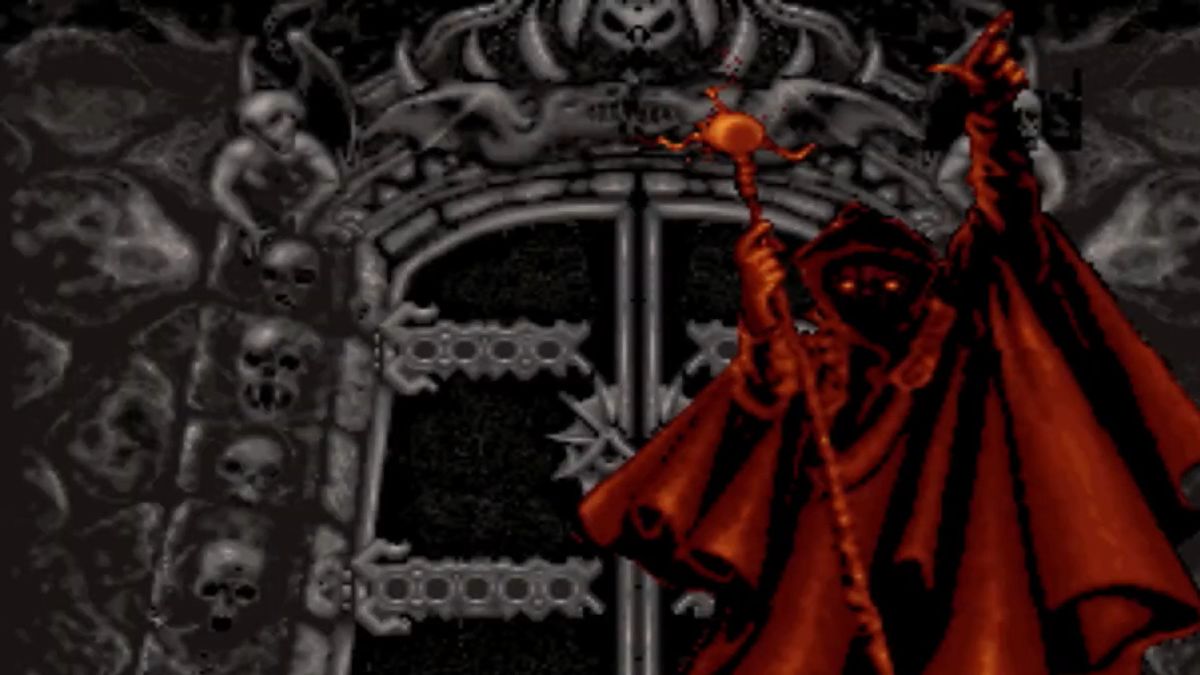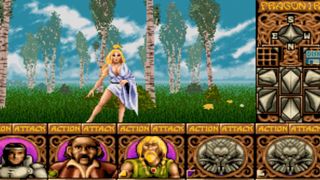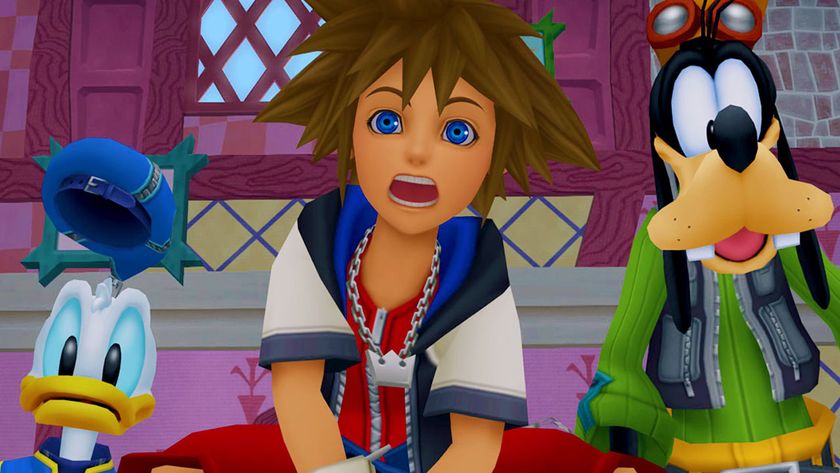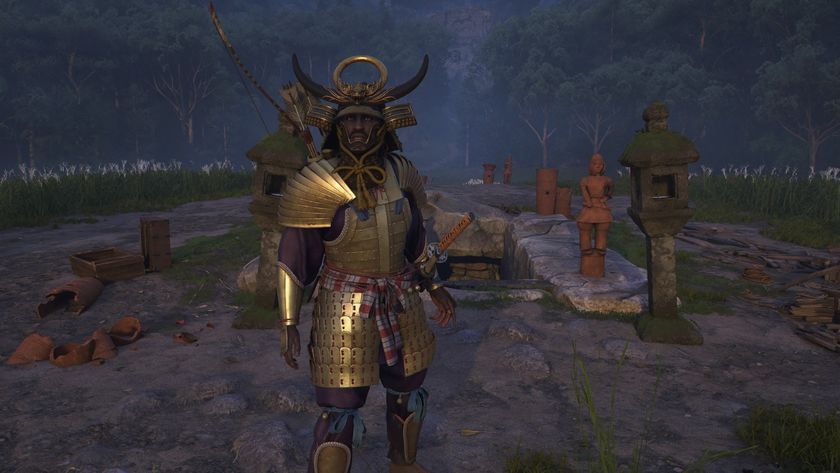Rediscovering the brilliant and brutal 22-year-old RPG that charges a ridiculous 1,000 in-game coins just to save your game
Now Playing | The game's party recruitment system can also lead to a bloodbath revolt

I've been on a retro games kick recently, rediscovering a number of bygone hits that featured throughout my childhood. Born in the mid-80s and having first discovered video games in the early 90s – shout out to DMA Design's Lemmings, the one that started it all for me – my formative years are filled with memories of my dad and I hunched over the family Atari ST, clicking its anti-ergonomic mouse through blocky chip-tune driven adventures, while squinting at the PC monitor's rear-projection screen.
Sword of Vermillion and Legend of Dragoon are two console classics that have re-entered my life in recent times, but my latest obsession dates back further – to the MS-DOS days of 1992 when I was just six years old. I might have been a year or two older when I first played Ishar: Legend of the Fortress, admittedly, but it's stolen my leisure time of late with the same ruthless vigor as the old-school role-player's innkeepers.
Guilty as charged

"Ishar: Legend of the Fortress' challenge, though, was absolutely compounded by its save system."
If you played RPGs in the late 90s/early 2000s (especially those of the JRPG variety) I'm sure you're familiar with saving your game at old-timey inns. From Suikoden to Chrono Trigger, pre-FF7 Final Fantasy games and beyond, saving at inns was ubiquitous in the genre; resting almost always restoring your party's health and MP, with selecting a dialogue option at the front desk letting you overwrite your previous save file. Even today, the likes of Dragon's Dogma 2 – a game who wears its throwback features firmly on its wizard's sleeve – continues the tradition, with resting at inns in turn activating an autosave.
Rewind to 1992, however, and Ishar: Legend of the Fortress took a distinctly different approach. It enforced the same stay-here-save-here mechanic, admittedly, but instead of doing so in a cursory way, a la what DD2 would eventually do 32 years later, it charged you for the pleasure – to the tune of 1,000 in-game coins! Which, and this likely goes without saying, was a small bloody fortune. Like so many of its peers at the time, Ishar: Legend of the Fortress was often bastard hard – in its combat and its questing, with virtually no hand-holding, the most obscure puzzles, and a character recruitment system that was both ahead of its time and brutally hit-and-miss in its execution.
Ishar: Legend of the Fortress' challenge, though, was absolutely compounded by its save system. This has since been said to the point of cliché about choice-heavy games in the RPG genre, but every single decision genuinely held unreasonable weight – here, as a direct result of balancing the dichotomy of when to rest and when to soldier on. Again, challenging games were indicative of the era, but I can't think of any others that hinged their difficulty on their save system of all things.
It's also worth noting that the majority of games in the early '90s didn't have save systems whatsoever, which likely brought this one into even sharper focus. The platformers of the day, for example, gave you a set amount of lives and continues, and if you ran out of both, it was Game Over and your call if you wanted to start over and try again. Puzzle games, on the other hand – such as the aforementioned Lemmings – offered bespoke codes that allowed you to return to more advanced levels upon restart. And that was pretty much it. In fact, I don't remember dedicated saves becoming a semi-regular thing until the Electronic Arts games of the mid '90s, whose Sega Mega Drive/Genesis cartridges were bulkier with a distinguishable yellow plastic button on the side.
Most games at the time, granted, weren't sophisticated enough to merit save systems, but Ishar: Legend of the Fortress definitely did. Its combat was akin to high-fantasy Wolfenstein 3D, its screen-by-screen six-way direction exploration was state of the art, and its recruitment system – which included a party vote, whereby your current entourage would vote for or against the new face's enrolment; majority rules – was hilarious and sophisticated all at once. I don't remember this the first time around, but upon replaying Ishar: Legend of the Fortress, I recruited a cloaked warlock named Unknown from a rowdy tavern and found that my lizard man friend Xylaz approved, my Golden Axe-style barbarian was on board, yet my teeth-bearing werewolf type Mogh was completely against it. I don't know what beef my hairy pal had against wizards and/or the dark arts, but he was made to swallow his pride and accept our new recruit regardless.
Sign up to the 12DOVE Newsletter
Weekly digests, tales from the communities you love, and more
Keeping track of all of the above is no easy feat, especially if you decide to dismiss characters without obvious reason. You can fight with five characters at a time, you see, but if you wish to dismiss one character in favor of another, this is also decided by party vote. If your party votes against their dismissal, you might choose to have one of your team murder the person you want rid of (yes, really) – which can result in a revolt where the murderer is murdered by their fellow, clearly disgruntled team members. Even worse, when you're also forced to add financial advisor onto your long list of duties while surviving the deadly world of Kendoria, things get complicated very, very quickly. I'd ask to be saved in different circumstances, but I don't want to put that burden on anyone's wallet.
Check out some of the best JRPGs of all time

Joe Donnelly is a sports editor from Glasgow and former features editor at 12DOVE. A mental health advocate, Joe has written about video games and mental health for The Guardian, New Statesman, VICE, PC Gamer and many more, and believes the interactive nature of video games makes them uniquely placed to educate and inform. His book Checkpoint considers the complex intersections of video games and mental health, and was shortlisted for Scotland's National Book of the Year for non-fiction in 2021. As familiar with the streets of Los Santos as he is the west of Scotland, Joe can often be found living his best and worst lives in GTA Online and its PC role-playing scene.













